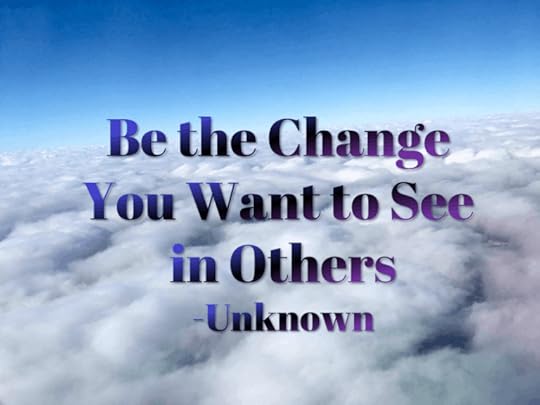Tina Hallis's Blog, page 11
July 3, 2021
What if Life Is Like a Favorite Vacation?

What would be your favorite vacation if anything and anywhere were possible?
Now imagine you’re finally there! You’re immersed in your favorite surroundings and activities and people. It’s everything you dreamed it would be!
But throughout this wonderful experience, you can’t help but think about the work waiting for you when you get back. Or you feel anxious because you know this vacation is going to go by too fast. Or maybe there are certain things that trigger you to dwell on past frustrations or stresses.
Instead of being fully present, you find yourself getting stuck in your head, thinking about other things that keep you from fully enjoying your amazing vacation.
I find this is a great analogy to life. What if life is really like a vacation? We’re here to enjoy a variety of experiences. We’re surrounded by fascinating scenery. But we get so caught up in the details, the worries, the things we can’t change, that our vacation time slips away.
Yesterday I spent hours on the phone with customer service trying to fix my internet issues. I could feel my mood slipping. Then I remembered an inspirational video my mom sent me about SSG Travis Mills, a quadruple-amputee who talked about choosing your attitude.
And I went back to an article by David Romanelli who talked about how lucky he is despite the fact that his 3-year-old daughter has cancer. This was a shift for him. He was talking to another parent who had lost their child in an accident. This parent pointed out that David had the possibility and opportunity for his daughter to recover.
After finally getting the internet issues resolved, I rode my bicycle up the road to a countryside cemetery. As I walked between the gravestones, I reflected on how precious life is.
I’m determined to surround myself with uplifting messages that help me be present and enjoy this wonderful “vacation.”
What videos, websites, posts, books, songs, etc. make it easier for you to fully appreciate and be present in your life?
June 27, 2021
What Do You Like About Yourself?

It was the end of yoga class and we were in the traditional Savasana pose, laying on our backs, relaxing from our workout. As I was settling in, the instructor said, “Take a moment to thank your body and to think of something you like about it.”
The first request seemed doable, but the second made me uncomfortable. Somehow finding things I liked about myself seemed prideful, narcissistic, or just plain weird. It seemed much more normal and easier to be critical of my body. I was curious about my strong reaction.
Today, I stumbled upon an article on being genuine called Flying High with What’s Genuine
by Laurie-Beth Robbins. Within its wonderful stories and analogies, there was a section that reminded me of my reaction,
“The most irreverent component of my upbringing, however, was that my mother instilled within me a love of my God-given figure at any weight, stage, or age. This hideous and insidious “body hate” and negative self-talk that tragically plagues too many individuals in our nation today (particularly women) is a script I was never given.
And my mom was heavy!
“Sport mom” or not, she didn’t cover up in any shy or shameful way, nor exude any disdain for her physique. And she was persistent in teaching me not to either.
My mother was a journalist and intent on exercising her mental muscle, after all, and my father adored her in public and in private and told ANYBODY and EVERYBODY who would listen about his “brilliant and sexy baby!”
And so I never learned that having some cellulite on one’s thighs was equivalent to being “less than,” or that a climbing age equated to a deficit in one’s beauty.
Compared to the onslaught of concerns abounding today, I often wonder if I was raised backwards or by wolves. Indeed, everything I’d learned was NOT important would prove to be the most essential points of fixation en masse when I went out into the world.
What a PANIC people professed for the very things I’d been schooled were not genuine!”
Feeling unhappy or critical of ourselves can impact both men and women. This week, try finding things to love and appreciate about yourself. Consider all aspects; physical traits, strengths, values, and skills. You are AMAZING and AWESOME just as you are!!
June 19, 2021
Lessons from a Hummingbird – Overriding Our Survival Instinct

The other day I noticed a hummingbird had found its way into our garage. It was frantically flitting along the ceiling, desperately trying to find a way to get out, but without success. It appeared to be trapped.
But from my human vantage point, I could see that it wasn’t trapped. The big garage door was open wide and both side doors were open, too. It could easily have swooped down just a foot and found its escape. Why was it so determined to stay stuck, flying as high as the ceiling would allow?
Then it hit me; the hummingbird was scared and was stuck in survival mode. Its instincts were telling it that higher was safer. Its fear was keeping it trapped, unable to see clearly and find its way out. If only I could help it override its survival instinct and show it a better, easier way.
I was struck by the similarities to our human survival instinct and how our saboteurs keep us stuck in negative emotions like fear, unable to see clearly. Maybe we’re not trapped in a garage, but we can easily feel trapped in other ways, unable to reach our dreams and live our best life. If only we could override our survival instinct and find a better, easier way.
Have you taken the saboteur assessment yet? It can be extremely valuable to identify the way your survival wiring is showing up in your mind. My top two are the pleaser and the avoider. I’ve found that knowing this makes it easier for me to catch these internal voices in action. Applying a label takes away some of their power, letting me see other options more clearly.
This week, identify your saboteurs and see if you can notice them in action. Consider how they’re keeping you stuck.
June 13, 2021
We were driving down a four-lane highway on our way to an...

We were driving down a four-lane highway on our way to an appointment. My husband was at the wheel. As he pulled over in the left lane to pass another driver, he commented on the long line of cars in the left lane. The cars were going slow enough that he couldn’t pass the driver on the right. He started to get frustrated, complaining that whoever was driving slow in the left lane should get out of the way.
I could feel myself getting stressed by his frustration. I told him we had plenty of time to get to our appointment, but he was irritated by the slow flow of traffic and the unwavering left-lane driver up ahead.
I started to say, “You should just . . .” I didn’t finish. I was going to say, “You should just relax since you can’t control the other driver.” But it hit me; I needed to take my own advice. I should just relax and stop trying to change the other person, my husband.
I took a few breaths and told myself to “love what is.”
Byron Katie is the author of “Loving What Is,” a book that’s made a huge impact on me. She has a set of questions she calls, The Work.
Q1. Is it true?Q2. Can you absolutely know that it’s true?Q3. How do you react, what happens, when you believe that thought?Q4. Who would you be without that thought?Q1. Is it true that my husband should not be stressed by the slow driver stuck in the left lane? My initial answer is, yes, he should just relax and not let it bother him.
Q2. Can I absolutely know that he should not let it bother him? Hmmm. I’m not him. He has his own reasons for reacting the way he does. Maybe it’s not absolutely true…
Q3. When I believe he should not be stressed, how do I react? I get stressed.
Q4. If I let go of that thought, if I just accepted his feelings, I would feel more relaxed. Hmmm.
Give this practice a try when someone else’s bad mood is impacting your mood.
Want more strategies for dealing with someone else’s negativity? I’m running a 7-day summer special on my online 7-week Masterclass, Keep Your Positive Edge: How to Build Your Immunity to People’s Negativity.
Use the coupon code SUMMERFUN at the checkout and save $100. Get the course for only $97 for the next 7 days.
June 6, 2021
How to Make Disagreements Less Disagreeable – Start with Connection

I don’t like conflict. And as I learn more about myself, I’m not surprised. For example, I’ve learned that my top saboteurs are the Avoider and Pleaser, and that my Everything DiSC personality type is Steadiness, which is all about harmony. So when I heard about the highly recommended book, Conflicted: How Productive Disagreements Lead to Better Outcomes by Ian Leslie, I was all ears!
Ian lists 10 rules of productive argument. His chapter on the first rule, connect, has already made an impact on me and totally aligns with the Saboteur vs. Sage concept I’ve been learning from Shirzad Chamine.
Ian points out that the initial exchange in an interaction determines the outcome. If I feel attacked, my instinct is to attack back or get defensive. My saboteurs are on high alert to protect myself. But if I feel a sense of connection, then my sage is activated, and I’m more open and curious.
So the key to conflict is to start the interaction with concern for the other person. The goal is to understand and validate not only their point of view but also their emotions. When we tap into our sage powers of empathy and curiosity, we create a bridge instead of a wall.
In the book, Ian shares examples from teams, companies, marriages, law enforcement, customer service professionals, and interrogators. One of his examples from de-escalation training for police officers really resonated with me. When someone is upset, the last thing you want to do is to tell them to calm down. Instead, the training recommends ‘starting where they’re at.’ Listen for the emotion behind their words and then validate their emotions. “It sounds like you’re upset.” They might respond, “Damn right, I’m upset!” What experts have found is that acknowledging their feelings can help them relax.
“Unarticulated emotion is like an unexploded bomb, and naming it somehow defuses it.” – Ian Leslie
Do you have any tense relationships or even occasional tense situations with others? See if you can tap into your sage and start by showing concern and empathy to create more connection and break down the walls.
May 30, 2021
A Story that Touched My Heart and Deepened My Gratitude – My 4-Year-Old Guru

This morning, I found a newsletter in my email that included an article called My 4-Year-Old Guru, written by David Romanelli. I was quickly sucked into the story. (It has a happy ending.)
David tells how on April 30, 2020, at 5:30 pm, their pediatrician called to tell them that their 3-year-old daughter, Cooper, had acute leukemia, and they needed to rush her to the Phoenix Children’s Hospital to start treatment right away. He shares how he struggled to hold himself together, relying upon his years of yoga and meditation. This was the beginning of the hardest year of their lives.
David goes on to say that the hardest part of the past year was the weekly visits to the clinic for chemotherapy infusions. They would sit in the waiting room with the other parents and kids, waiting to get called. The first step was to insert a needle in his little daughter’s port in her chest so they could draw her blood and see if there were enough healthy cells before giving her the next round of chemotherapy.
This routine became a part of their life, week after week; waiting for the results, waiting to get the chemo, and watching their daughter suffer the side-effects.
They learned that a huge part of healing is the story you tell yourself, so they never used the word cancer or chemotherapy. Instead, they told 3-year-old Cooper that she was getting superpowers in her tubes. And she believed it.
Little Cooper is now in remission!! Yay!!
I’m not sharing this story to make you cry like I did. I’m sharing it because David’s comments at the end were such a good reminder for me. He said,
“Our family is much better off now than ever before. Our levels of gratitude and joy are off the charts. But it took something like this to wake us up. To crystalize our gratitude.”
What an inspiring story of post-traumatic growth! What an inspiring story to remind us to appreciate what we take for granted!! Join me for a moment of deep gratitude by closing your eyes and focusing on the good things in your life.
May 23, 2021
What If Stressing Won’t Change Anything?

I tentatively placed my foot onto the dark soil. As I slowly shifted my weight onto it, I could feel my foot rapidly sinking. Yikes! I quickly pulled it back to safety.
I plant a pretty big vegetable garden every spring; maybe 50 by 30 feet in size. My goal is to get the seeds and plants in after the last frost, which is usually mid-May. Today is May 23rd. It’s time to plant!! But we’ve been getting so much rain that my garden is a muddy mess. I tested it yesterday, and quickly realized I would sink out of sight if I tried to walk in it! So I have to wait…
There’s a part of me that wants to stress. The longer I wait, the longer until we can enjoy the fresh produce and the less produce we’ll harvest. I should be planting now! I know that’s my survival instinct kicking in, focusing on what I don’t like.
I have to tell myself that stressing won’t change anything.
My 15-year old daughter tells me she would like to go to college far away and in a big city. She wants to visit campuses in New York City and Los Angeles. There’s a BIG part of me that could easily stress about her plans. I want to support her dreams, AND I want her to be safe. I know that’s my survival instinct kicking in, focusing on what I don’t like.
I know if I show any signs of disagreement, it will only make her more determined. I have to tell myself that stressing won’t change anything.
Building my positivity skills has been incredibly valuable for letting go of useless stress. It takes practice, but I’m getting better at having a conversation with myself so I can realize when things are out of my control.
What about you? What are you stressing about that you can’t change? Try having a talk with yourself, and check out this tip for more ideas, There’s So Much to Worry About – It’s Stressing Me Out.
May 15, 2021
You Can’t Want Things for Other People, Even Those You Love

Are there people in your life that you know would be happier, healthier, or less stressed if they would only . . .
Not be so hard on themselvesBelieve in themselvesNot be so judgmentalUse their time betterNot get so frustrated with situationsNot be so negativeYou know if they would just change what they do or how they think, their life would be so much better.
When I care about someone, I don’t want them to suffer. It’s easy for me to feel like I know what’s best for them. But what I’ve been learning these past several years as I study, use, and teach positive psychology is that we can’t want things for other people. In fact, the more we want them to change, the more they can feel it. And it’s likely to push them away or make them resist changing even more.
What should we do?
Depending on the situation, it may be a much better outcome if we would only . . .
Use empathy and understandingAccept them for the way they areLet them know we’re there for them in any way they needShow we care with the Love Language they preferNot get triggered by their attitude or behaviorBe a good listenerKeep our thoughts to ourselvesAnother great way is to work on ourselves and be a role model for self-growth without judgment of others.
“Be the change you want to see in others.” – Unknown
One of my favorite books that has made a huge impact for me is Loving What Is by Byron Katie. I highly recommend it or at least watching some of her videos. You can learn more about her and her message in my tip, An Amazing Book that Changed My Thinking – Loving What Is
This week, when you wish you could “fix” someone you care about, pause and notice your thoughts, then try one of the options above.
May 9, 2021
Do Your Loved Ones Ever Drive You Crazy? Build Your Immunity

I love my family! My relationships with my daughter and husband are a top priority in my life. Yet there are times we can drive each other crazy. Certain things they say or do can trigger me and cause me to say or do things I later regret. Why did I snap at them like that? Why did I lose my cool? Can you relate?
If you’re like me, my interactions with other people, even those I love, can sometimes create frustration and stress. It may be that grumpy customer service person, or that friend who’s in a bad mood, or even another driver on the road.
What I’ve learned that’s made a HUGE difference in my life is to build my immunity. Even though it’s easy for me to think that the other person needs to change, a much more effective and faster way to improve the situation is to change myself.
Immunity to Negativity Formula. Step 1 – Prepare – This step is all about getting ready ahead of time. It’s about making sure you have the right “protection and equipment” to handle what other people might throw at you. I think of it like a baseball catcher with their helmet and catcher’s mitt. If they miss the ball, they won’t get hurt.Step 2 – Practice – Step two focuses on having our protective equipment ready before the big game and finding everyday opportunities that we can practice on. Now we get better at catching the ball and deflecting those misses.Step 3 – Pause – Step three is the first step when we are in the moment with our negative person. It’s the brief space between being exposed to their emotions and reacting with our own emotions.Step 4 – Notice – Now that we’ve paused, we have the opportunity to notice how we’re feeling and the first reaction that comes to our mind. Pausing and noticing are important steps we can practice on the easy stuff ahead of time (see Step 2).Step 5 – Choose – This is the step that transforms our interactions and strengthens our relationships. It’s the point where we get to decide what the best response would be for this specific situation. Instead of assuming, we get curious. Instead of getting impatient, we take a breath. Instead of judging, we use empathy.
Step 1 – Prepare – This step is all about getting ready ahead of time. It’s about making sure you have the right “protection and equipment” to handle what other people might throw at you. I think of it like a baseball catcher with their helmet and catcher’s mitt. If they miss the ball, they won’t get hurt.Step 2 – Practice – Step two focuses on having our protective equipment ready before the big game and finding everyday opportunities that we can practice on. Now we get better at catching the ball and deflecting those misses.Step 3 – Pause – Step three is the first step when we are in the moment with our negative person. It’s the brief space between being exposed to their emotions and reacting with our own emotions.Step 4 – Notice – Now that we’ve paused, we have the opportunity to notice how we’re feeling and the first reaction that comes to our mind. Pausing and noticing are important steps we can practice on the easy stuff ahead of time (see Step 2).Step 5 – Choose – This is the step that transforms our interactions and strengthens our relationships. It’s the point where we get to decide what the best response would be for this specific situation. Instead of assuming, we get curious. Instead of getting impatient, we take a breath. Instead of judging, we use empathy.You have the power to change your interactions for the better. It’s not easy, but with a little effort, you can build your immunity!!
If you want some help, check out my 7-week Master Class here.
May 2, 2021
I Need More Opportunities to Practice Being Positive

My daughter’s friend told her how much she loved the iced mocha frappe at the drive-through coffee place in town so she couldn’t wait to try it. As we pulled into the line, I noticed that it was long and moving very, very, very slowly. Eventually, we placed our order and continued to wait.
When we got to the window to pay, I handed over my credit card. It dawned on me that the amount seemed a little too high. When I asked him about it, he realized they had looked at the wrong order. We waited even more as they struggled to correct the charge. We finally pulled up to the second window to get our frappe.
As I pulled away, my daughter looked down at the drink and said, “This is not mocha. This is caramel. I don’t like caramel!”
We turned back into the parking lot so she could run inside and correct the order. She quickly returned to say that the dining room was closed and we had to get back in line; the super long, super slow drive-through line. I was a little more than agitated.
We waited and waited. When we finally reached the speaker to order, I could hear the agitation in my voice. I crisply told the person about the mistake and how frustrated I was because the line was so slow. I apologized for sounding frustrated. I knew it wasn’t their fault, but hopefully, they could understand my irritation.
More waiting. When reached the first window, he handed us a coupon and apologized for the confusion. When we pulled up to the second window to get our iced coffee, they tried to give us a different order but we corrected them and this time we received or iced mocha frappe. Finally! This had taken forever!
As we drove away, my daughter finally had a chance to sample the special treat that her friend had recommended. After a few tastes, she discovered that she didn’t like it!! This quick stop for a special treat had turned into a total waste of time and money! We both laughed as she reminded me that I’m supposed to see the positive. Obviously, I still need opportunities to practice.
This week, see if you can turn life’s little challenges into opportunities to practice patience and staying positive.



